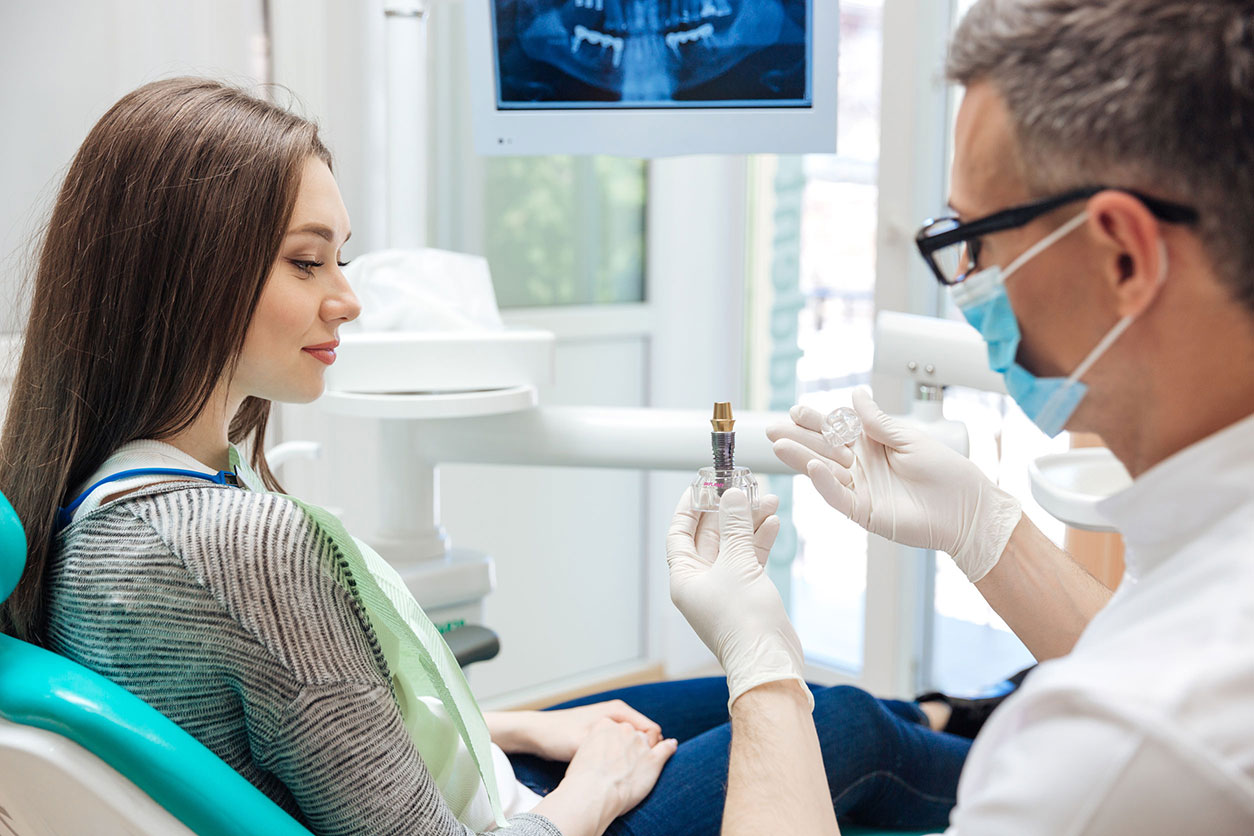
Implantology
Dental implants
The introduction of dental implants began in the late 1960s on a confidential basis, but slowly became widespread in the 1980s.
It is therefore a safe technique because the clinical hindsight is important. However, it is also an innovative technique because it is regularly improved, whether in terms of the chronology of the treatment, the materials used, the shortening of healing times or the number of operations required.
The basic principle of implantology is to replace a dental root with an artificial titanium root, which will serve as a support to hold an artificial tooth, most often made of ceramic.
Thus, whatever the reason for which you lost your tooth (decay, tooth loosening, fracture in an accident), you will be able to recover both the function and the aesthetics of your natural tooth.
Why replace his missing teeth?
YOUR TEETH FORM AN INTEGRAL WHOLE
Your 32 teeth form a stable unit, each tooth is held in place by leaning against its neighbour to the side and opposite.


Nature abhors emptiness: when a tooth is missing, the neighbouring teeth will try to fill the space left free. In a few months or years, but inexorably, they will move, leaving enough space on either side of each tooth to hold food waste that will cause the bacteria that cause cavities to build up. That's why teeth that are close to toothless are often decayed.
It is imperative to replace missing teeth before this unavoidable process is even started.
The benefits you can derive from it are multiple:
- Comfort first: Implant dentures are mostly fixed, you can eat on them any food just like your natural teeth. Implants can sometimes be placed simply to stabilize a removable appliance (a denture), and the comfort also increases considerably compared to a mobile prosthesis.
- Aesthetically, a tooth on an implant is not different from a natural tooth. It is the perfect replica of your tooth and will blend into your smile as if nothing had happened.
- Longevity: a dental implant cannot have cavities, it will not need to be devitalized, and it is much stronger than a natural tooth. It can therefore last a very long time if you take good care of it.
- From a biological and ecological point of view, your dental implant, by being independent of the natural teeth, will not weaken them but on the contrary will help to preserve them for longer: your chewing forces will be spread over a higher number of teeth, so they will work less.

The operating protocol may include a reduced or increased number of sessions. This is determined after a detailed oral and radiological examination, with analysis of residual bone volume and gum status. In the best case, an immediate extraction/implantation/esthetics can be performed: in this case, in the same session we can remove the damaged tooth, place the implant and make a provisional crown. In other cases the treatment will require several successive operations.
You can consult HERE our page on bone grafts.


